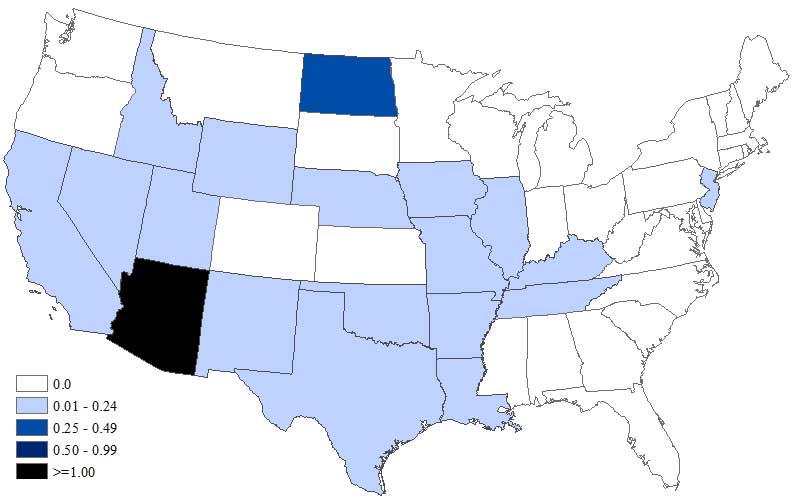Eudora teen and his family struggle with West Nile virus
Small bite, big worries
Monday, February 27, 2006
Eudora — After an autumn filled with headaches, nausea and mind-bending medications, 16-year-old Chad Pyeatt could be forgiven for thinking that his West Nile virus couldn’t get any worse.
But it did. A couple of weeks ago — for one night — he went blind.
“My vision started blanking out,” said Pyeatt, a junior at Eudora High School. “Little spots would disappear out of my vision. It ended up progressing — one morning I woke up and my right eye was completely blind. That night, after that morning, the other eye went completely blind.”
Pyeatt knew, from Internet research, that West Nile could cause temporary blindness lasting up to a month. His parents took him to a hospital in Olathe for observation; the next morning, though, his eyesight had returned.
Still, Pyeatt said, “it was pretty scary.”
The vast majority of people who contract the West Nile virus don’t know it — they never develop symptoms. Others get mild symptoms but recover quickly. Pyeatt is in a third category, stricken severely enough that he’s missed roughly 50 days of school since fall.
Kim Ens, disease control program coordinator for the Douglas County Health Department, said such cases were uncommon. Four laboratory-confirmed cases of the virus were found in the county in 2005.
“It’s around, we know it’s around, and it can cause people to get sick,” she said. “For most healthy people, if they get West Nile it’s not going to be a serious illness or anything. There are some people who get sick from it. In rare cases they can get very sick.”
Pyeatt developed the illness in August, though his family doesn’t know how. The family has two fish ponds on its property in Eudora and lives near a creek. But mosquitoes that spread the disease could have found Pyeatt during the family’s summer float trip in central Missouri.
“He got sick just as we were starting the school year,” said Pyeatt’s father, Marty. “We took him to the doctor — he had headaches, aches and pains, flu-like symptoms, and we took him to the doctor.”
It took until November, though — and a battery of tests, including a spinal tap — before blood work revealed the cause of Pyeatt’s sickness.
“He was sick that long ... I was thinking he was just having trouble at school or something. ‘Why are you staying home?’” Marty Pyeatt said. “It turned out to be West Nile. I felt bad I was upset with him.”
Chad Pyeatt said the disease had caused him to miss time at school and with friends. His A’s and B’s in classes have turned into F’s. His research tells him the symptoms could last up to a year.
“I’m pretty unlucky,” he said, “to get what I got.”


